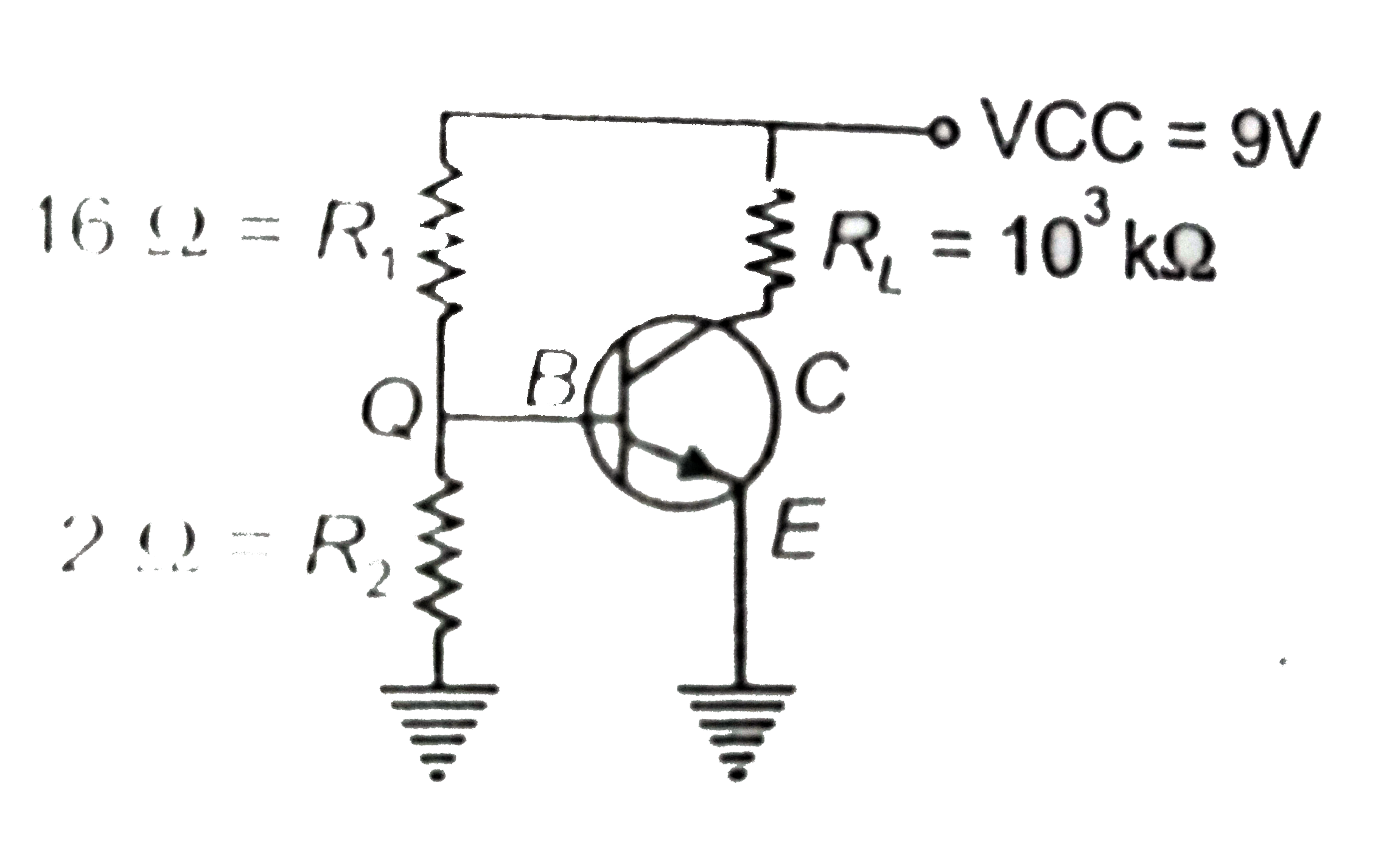A transistor is used in the common emitter mode as an amplifier then :–
(A) the input signal is connected in series with the voltage applied to bias the base collector junction
(B) the base emitter junction is reverse baised
(C) the input signal is connected in series with the voltage applied to bias the base emitter junction
(D) the input signal is connected in series with the voltage applied to bias the base collector junction
A, B
A, D
A, C
only C
The correct Answer is:C
Topper's Solved these Questions
- ELECTRONICS - SEMI CONDUCTORBook:MOTIONChapter:ELECTRONICS - SEMI CONDUCTORExercise:EXERCISE - 2
Explore 32 Videos
- ELECTRONICS - SEMI CONDUCTORBook:MOTIONChapter:ELECTRONICS - SEMI CONDUCTORExercise:EXERCISE - 3
Explore 29 Videos
- ELECTRONICS - SEMI CONDUCTORBook:MOTIONChapter:ELECTRONICS - SEMI CONDUCTORExercise:ADVANTAGES OF SEMICONDUCTOR DEVICES OVER VACCUM TUBES
Explore 3 Videos
- ELECTROMAGNETISMBook:MOTIONChapter:ELECTROMAGNETISMExercise:Exercise
Explore 136 Videos
- ELECTROSTATICSBook:MOTIONChapter:ELECTROSTATICSExercise:Exercise -3 Section (B) Previous Year Problems | JEE Main
Explore 30 Videos
Similar Questions
A transistor is used in common emitter mode as an amplifier. Then
(1) the base-emitter junction is forward biased
(2) the base emitter junction is reverse biased
(3) the input signal is connected in series with the voltage applied to the base-emitter junction.
(4) the input signal is connected in series with the voltage applied to the base collector junction.
View SolutionIn the given circuit , the voltage across the base emitter junction is

View Solution
Knowledge Check
A transistor is used in common emitter mode as an amplifier. Then
(1) the base-emitter junction is forward biased
(2) the base emitter junction is reverse biased
(3) the input signal is connected in series with the voltage applied to the base-emitter junction.
(4) the input signal is connected in series with the voltage applied to the base collector junction.A1,2 and 3B1 and 2C2 and 4D1 and 3Assertion : In transistor common emitter mode as an amplifier is prefered over common base mode.
Reason: In common emitter mode the input signal is connected in series with the voltage applied to the base emitter function.AIf both Assetion & Reason are true and the reason is the not the correct explanation of the assertion , then mark (1)Bif both Assertion & Reason are true but the reason is not the correct explanation of the assertion ,then mark (2)CIf Assertion is true statement but reason is false, then mark (3).DIf both Assertion and reason are false statements, then mark (4)Assertion : In transistor common emitter mode as an amplifier is prefered over common base mode.
Reason: In common emitter mode the input signal is connected in series with the voltage applied to the base emitter function.AIf both the assertion and reason are true and reason is a true explantion of the assertion.BIf both the assertion and reason are true but the reason is not true the correct explantion of the assertion.CIf the assertion is true but reason falseDIf both the assertion and reason are false.
In the given circuit , the voltage across the base emitter junction is

View SolutionAssertion : In transistor common emitter mode as an amplifier is prefered over common base mode.
Reason: In common emitter mode the input signal is connected in series with the voltage applied to the base emitter function.
View SolutionIn a common emitter amplifier the input signal is applied across
View SolutionAssertion : In transistor common emitter mode as an amplifier is preferred over common base mode.
Reason : In common emitter mode the input signal is connected in series with the voltage applied to the base emitter function.
View SolutionIn a common emitter amplifier the input signal is applied across
View Solution
